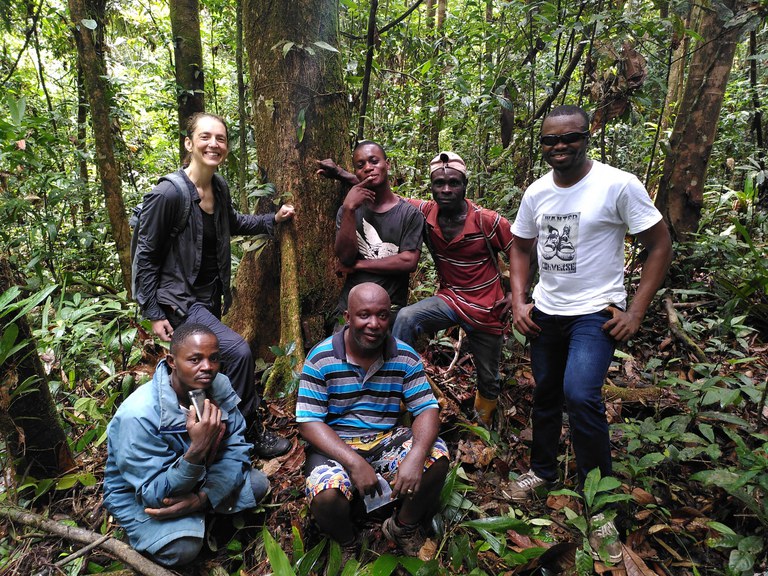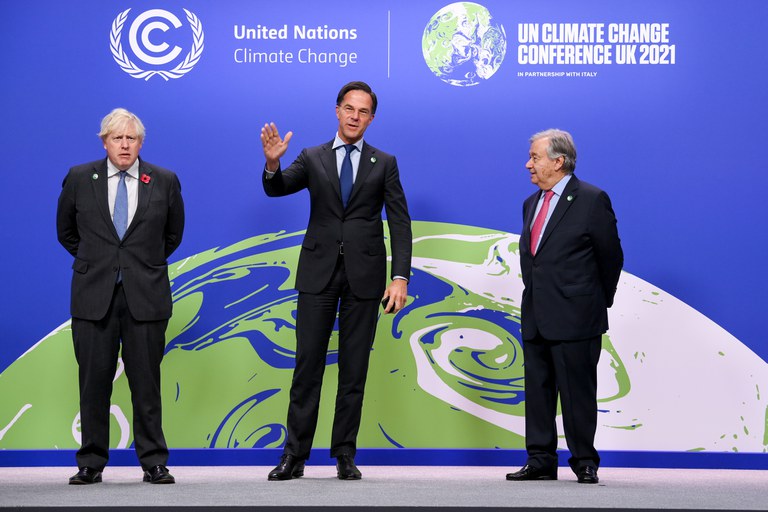Friends of the Earth groups work together worldwide to combat deforestation, protect livelihoods and transform the energy system. We recognise the crucial role of indigenous people and local communities (IPLC's) in protecting forests and sustainable and just energy, while we work with them to address the global drivers of deforestation and fossil fuel extraction. These are our achievements in 2021.
In Liberia, Cameroon and Ghana Friends of the Earth (FoE) partners and local forest monitors document illegal deforestation. In Liberia, Sustainable Development Institute (SDI) and Milieudefensie (Friends of the Earth Netherlands) used satellite images and spent days in plantation areas with GPS devices to document deforestation by palm oil company Golden Veroleum Liberia (GVL). Based on that verified evidence, we filed the first ever complaint with the High Carbon Stock Approach (HCSA), which is an international arbiter on deforestation. In February 2021, the HCSA published the final grievance report and compelled GVL to restore 1,000 ha of deforested land.
FoE Ghana trained members of local communities to become independent forest monitors, using mobile technology. This was done to increase protection of the important Juaboso-Bia landscape, which hosts some of the last patches of tropical forests in Ghana. As a result of the findings of the local forest monitors, the forest authorities increased their forest patrols in the Bia West District from zero to weekly patrols. In the forest reserve the average of 10 illegal chainsaw activities per week was reduced to 5 per week because of regular monitoring by community forest monitors and Forest Authority patrols.
In Cameroon three illegal logging operations were shut down and marketing of illegal timber plummeted in the Moloundou area after local forest monitors send in deforestation alerts. Also in Cameroon, Centre pour l’Environnement et le Développement (CED) supports communities to resist companies and investors who take over their lands. CED brought traditional leaders of local and indigenous communities from all over the country together during the Land Tenure Week. They drafted a declaration to protect the collective land rights of IPLCs. This means that for the first time a very strong message from traditional leaders was created and used to advocate with the government. Consequently, the Minister of Agriculture and Lands voiced support for collective land rights.

Friends of the Earth International (FoEI) works with FoE groups and allies to achieve a strong new agreement or ‘Global Biodiversity Framework’ under the Convention on Biological Diversity (CBD). It should replace the former agreement that ended in 2020, but there are huge delays in the negotiations between the governments because of the COVID-19 pandemic. With one million species on the brink of extinction this agreement is more urgent than ever. We achieved important successes in working groups that prepare the new agreement, where text proposals from the CBD Alliance and FoEI gained much support.
As a result the draft text includes references that ensure that also economic sectors have to protect and promote biodiversity, and false solutions, such as so-called ‘nature based solutions’ that involve controversial off-setting schemes, are not accepted. We also managed to get text proposals in for regulations for businesses and support for agroecological approaches and indigenous food systems, as well as legal recognition IPLC rights. These are crucial text proposals which we hope can influence a good outcome for people and biodiversity in the CBD Conference of the Parties in Montreal this year.
Civil society groups in Malaysia, including FoE member Sahabat Alam Malaysia (SAM), have been able to successfully pressure the Selangor state government to understand and recognize the importance of forest protection. This was shown by the government’s announcement to re-gazette 534 hectares of the North Kuala Langat Permanent Reserved Forest, which had quietly been de-gazetted just a week earlier.
In November 2021 the European Commission (EC) published the Forest and Ecosystem Risk Commodities (FERC) draft regulation: a long awaited proposal that should stop products that cause deforestation like unsustainable soy, beef, palm oil, cacao, timber and coffee to be placed on the EU market. FoE organisations and allies advocated for this for years with public campaigns, research and bringing IPLC voices to decision makers. Ultimately, the draft regulation contains various strong elements. The proposal states that the Open Public Consultation showed ‘strong support for legally binding options (…) while soft, voluntary measures like voluntary due diligence, voluntary labelling or voluntary private certification were considered to lack in effectiveness.’ The EC thus concludes that certification schemes are not a proxy for due diligence.
Internationally, Export Credit Agencies (ECAs) have been driving climate change, deforestation and human rights violations by their continued public finance support for fossil fuel projects abroad. Relentless research, advocacy and networking by FoE partners and allies, contributed to the realization of the Glasgow Statement on shifting international public finance from fossil fuels to clean energy at UNFCCC COP26 in Glasgow. The signatories of the Statement - 34 governments, including the Netherlands, and 5 financial institutions – commit to ending all public fossil support by the end of 2022. This is a major breakthrough, not only because ECAs and other public finance institutions have continued to provide billions of public finance support to fossil fuel projects each year since the signing of the Paris agreement, but also because this support undermines the opportunities of countries in the global South to scale up green energy projects. The Glasgow statement will have a ripple effect as ECA support often attracts other financiers.

Fossil fuel companies Total, ENI and others are planning to build a huge offshore gas production facility of the coast of Northern Mozambique. The project will significantly increase Mozambique´s CO2 and methane emissions, in a region already hit hard by climate change through cyclones and droughts. It has already led to local farming and fishing communities losing their homes, lands, fishing grounds and income, and to social tensions on the ground. To date, more than 800.000 people have fled the region, women and girls face sexual and gender-based violence, and thousands of civilians have been killed. Due to these escalations project developer Total temporarily halted the project in the summer of 2021.
Public support mechanisms, including billions of export credit support from Dutch, UK, US, Italian and French export credit agencies (ECAs), were instrumental for this project. During 2021, FoE Netherlands/Milieudefensie, together with FoE Europe and (FOE) groups from Mozambique, the UK, France, US and Italy addressed these harmful financial support mechanisms. Together we supported FoE Mozambique/JA! in their campaign work and monitoring of the situation on the ground. At the Dutch level, Milieudefensie worked closely with other Dutch CSOs to bring raise public awareness on the climate and human rights impact of this gas project. We did a successful Freedom of Information (FOI) request about the Dutch ECA support, resulting in the Dutch parliament demanding an independent investigation into Dutch export credit support provided to the project.
In many places where we work, Environmental and Human Rights Defenders (EHRDs) are repressed, threatened, or faced with violence because of their work. FoE partners document and raise awareness on incidences of violence and repression to gain justice for those affected. On 7 September 2021 – the Day of Protection of Human Rights Defenders - the National Human Right Commission (NHRC) of Indonesia issued Regulatory Norm Standards regarding Human Rights Defenders as a fundamental guide for state institutions and law enforcement in Indonesia.
In the Philippines, the FoE group LRC-KsK supported forest guards to monitor human rights violations, including the killing of Non-Moro Indigenous people. As a result, the police filed 8 warrants of arrests against alleged perpetrators, out of 23 murder cases. In addition, the House of Representatives Committee on Indigenous Peoples called a Congressional Hearing to investigate the alarming rise of killings that were reported.
Our website uses cookies to ensure the use and functionality of this website. Read more about our cookie policy